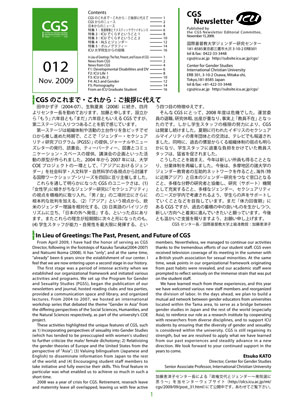Hinako MIYAZAWA
Undergraduate, ICU
【The article below is the same as the article that appears in the twelfth issue of the CGS Newsletter.】
Inter-Asia Cultural Typhoon 2009 was held at the Tokyo University of Foreign Studies from July 3 to 5. This year, it was a joint conference with Inter-Asia Cultural Studies that was attended by participants from around the world. Numerous panels and presentations covered diverse topics under the sub-theme "Globalization and Its Fault-Lines: Beyond Poverty, Surveillance, and Censorship." The conference venue was filled with artworks ranging from paintings and clothes to motion videos, and people also gathered outside at the food stalls and music performances. In addition to all the energy and excitement was the tension that is unique to international conferences, and it was clear that a great deal of effort and preparation had been put into this major event. The conference had a scope that transcended national boundaries, and its participants came from diverse backgrounds, in nationality, race, region, class, ethnicity, sex/gender, religion, and disability. This highlighted the growing need to consider diversity and to recognize differences among us, both as a significant perspective in academic debate as well as for self-reflection.

